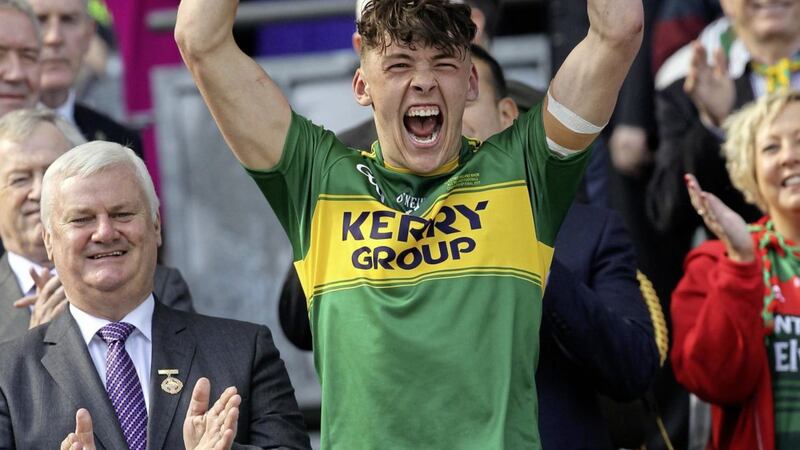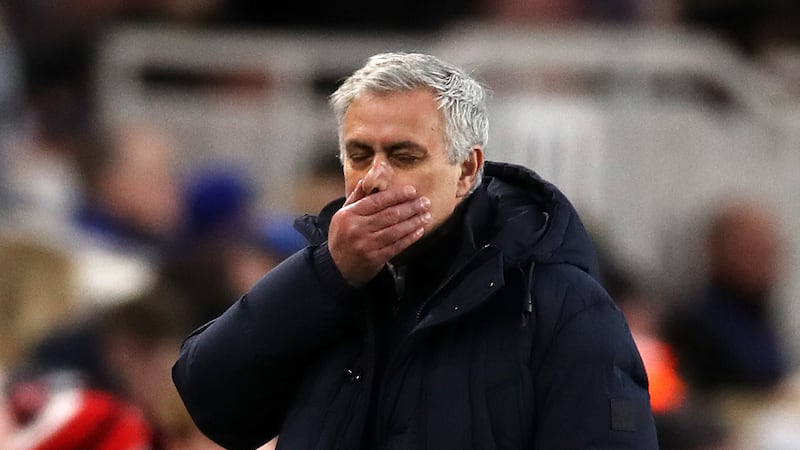FORTY years ago in much of Ireland, if you didn’t play GAA you didn’t participate in sports.
If you lived in rural Ireland the evening activity involved playing with your friends outdoors with a sliotar or a size four football. At least that is my abiding memory of boyhood.
Swimming was a novelty activity offered to the Primary 7 school kids once a week, while neither primary nor secondary schools in my area encouraged foreign sports as they were known – rugby and soccer.
Urban life for the townies may have been different, but then again urban folk are different. Over time society became more secular, open minds replaced insular thinking and education questioned conventional wisdom.
The changes are best observed through the increased opportunities to avail of a wide variety of sports. Kids from a very young age can attend gymnastics, karate, and so on, all at their local community centre.
Moreover, they can join swimming, athletics, soccer, rugby, GAA clubs and more, all within a few minutes drive from their home.
Parents are aware of the benefits sport brings to their child’s health and the opportunities it creates to develop new friendships but, more than that, they are becoming increasingly aware of the benefits engaging in one sport can bring to another sport.
Take basketball as an example. Both Kieran Donaghy and Aidan O’Shea attribute their exemplary spatial awareness and fetching ability to skills attained playing basketball.
This training has helped to make them stars in their number one sport – gaelic football.
I remember being introduced to basketball at grammar school.
My football skills were of little use on the basketball court, as was evident by the clumsiness of my footwork and my unerring ability to give away free throws but I could see immediately how the training would better prepare me as a gaelic footballer.
Back then basketball, as a sport, was streets ahead of GAA in terms of strategy and game-planning. It was about plots and counter punches, about making decisions under pressure.
Compare that to modern football and you can immediately see the close relationship which exists between these two sports, particularly for the benefit of the GAA.
Perhaps this one-directional flow of benefits is the reason no-one ever complains about gaelic players playing basketball.
That basketball is largely a winter sport is an additional plus.
The greatest sporting threat to the GAA appears to be the Australian Football League (AFL) and Aussie Rules.
The threat is real because of the crossover of skills between both codes.
The ability to fetch, run and kick are prerequisites in both sports.
However, the attraction for many is lop-sided: GAA is amateur, AFL is professional; GAA is parochial with elevated status at county level, whereas the AFL has international appeal.
At its most basic level, the sun shines down on the AFL, whereas the weather in this country is rarely an attraction for any visitor.
Our most prodigious talents are attracted by the above appeal.
The ‘Irish Experiment’ as it was once known has produced results for a few lucky men but, if we are honest, most never last the course.
Down’s Marty Clarke returned home after a few years and helped his county get to an All-Ireland final and picked up an Allstar award for his efforts.
Colm Begley returned to his native Laois after four years with Brisbane Lions and is the driving force behind Laois’s efforts to acquire Championship success. Caolan Mooney and Kevin Dyas share a similar story.
We all fret of the loss of Derry underage marvel Conor Glass, and wonder if he could have been the next Anthony Tohill had he not joined Hawthorn in the AFL.
Equally, what if Kerry’s own Tadhg Kennelly sets his sights on their minor phenomenon, David Clifford?
Should he be lured from the beautiful hills of Kerry to sunnier climes Down Under, there will be uproar in the Kingdom and further afield.
I struggle with this reaction.
I don’t remember too many raising hackles when Neil Lennon quit football to move to Manchester City, when Kevin Doyle went to Reading along with Shane Long, or when Cillian Sheridan moved to Celtic.
Rugby is no different. Tommy Bowe, Rob Kearney and Tiernan O’Halloran all made a successful transition to the oval ball.
These men were given a clap on the back and get a hero’s welcome each time they return home, and rightly so.
They’ve followed their dreams and made a success of it. In the new Ireland we must accept that as we encourage our kids to taste many sports we are opening their minds and providing them with opportunities.
As parents and as a society we should not deny anyone a golden opportunity – whatever direction that leads them.
The real challenge is for that young person to fulfil their potential.
Derry folk are proud of their Conor Glass. Rob Kearney is a son of the Cooleys.
Neil Lennon is a hero in the town of Lurgan.
Should David Clifford travel the 16,000km to Sydney, he will still be a legend in Kerry.







